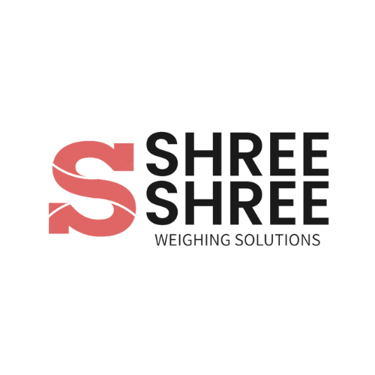Weighing Scales for the Textile Industry: Precision, Efficiency, and Quality Assurance
The textile industry is a vast and intricate sector where precision, efficiency, and consistency are key to maintaining high product quality and operational effectiveness. From raw materials to finished products, the accurate measurement of weight is essential in every stage of textile production. Weighing scales play an important role in the textile industry, helping manufacturers manage raw material inventory, ensure consistency in production, and adhere to regulatory standards. This blog explores the role of weighing scales in the textile industry, with a focus on weaving, dyeing, finishing, and quality control processes.
4/28/20255 min read


1. Precise Raw Material Weighing for Textile Manufacturing
The textile industry starts with the accurate measurement of raw materials such as fibers, yarns, and dyes. The precise weighing of these materials is essential to ensure consistency in the manufacturing process and the production of high-quality textiles. Weighing scales help textile manufacturers measure raw materials accurately, avoiding discrepancies that can lead to waste or product inconsistency.
Platform scales and floor scales are commonly used to weigh large quantities of raw materials like cotton, wool, and synthetic fibers.
Laboratory balances are used for smaller quantities, such as dye powders or chemicals, ensuring that precise amounts are added to the fabric.
By using precise weighing equipment, textile manufacturers can ensure that the correct amount of raw materials is used in production, leading to better quality control and reduced material waste.
2. Maintaining Consistency in Weaving and Spinning
In the weaving and spinning stages of textile manufacturing, the uniformity of yarns and threads is crucial for achieving a high-quality finished product. Weighing scales help ensure that the materials are measured consistently, allowing manufacturers to maintain the proper yarn tension and quality across large volumes of production.
Weighing systems monitor the weight of spools or bobbins to ensure that the yarn is consistent in terms of weight, thickness, and tension.
Load cells integrated with weaving machines help monitor the tension of the yarn as it is woven into fabric, ensuring uniformity throughout the production process.
By using accurate weighing solutions, textile manufacturers can reduce the risk of inconsistent product quality and improve production efficiency.
3. Dyeing and Chemical Additive Weighing
The dyeing process requires precise measurements of dye chemicals and additives to ensure the consistency and quality of the color applied to fabric. Even slight variations in the amount of dye or chemicals used can lead to uneven coloration, defects, or poor fabric quality. Weighing scales are essential in ensuring the precise measurement of dyes, chemicals, and other additives.
Laboratory balances are used to weigh small amounts of dye powders or chemicals before mixing them with water or other solvents.
Automatic batching systems can be used to mix large quantities of dye in a controlled manner, ensuring the correct ratio of dye to fabric.
By employing advanced weighing systems in the dyeing process, textile manufacturers can ensure that the fabric color remains consistent, reducing the chances of errors and improving the overall quality of the final product.
4. Weighing and Monitoring Fabric During Finishing Processes
The finishing stage of textile manufacturing involves processes such as drying, shrinking, and softening the fabric. During this stage, it is essential to monitor the weight of fabric to ensure uniformity and consistency in the final product. Weighing scales help textile manufacturers ensure that the fabric is processed correctly, without losing or gaining excessive weight during finishing processes.
Dynamic weighing systems are used to weigh fabric as it passes through various stages of the finishing line, including drying and steaming.
Automatic fabric weight monitoring systems track the weight of fabric rolls to ensure consistent dimensions and quality across the production run.
By using real-time weighing systems, textile manufacturers can improve the quality control of finished products and ensure that they meet the required specifications for weight and texture.
5. Ensuring Quality Control Through Weight Measurements
Quality control (QC) is vital in the textile industry to ensure that products meet customer specifications and industry standards. Weighing scales play a key role in QC by allowing manufacturers to monitor various parameters such as fabric weight, dye consistency, and finished product measurements.
Precision balances are used to weigh fabric samples to check the final weight of a product against the required standards.
Checkweighers can be used in the final inspection process to verify that finished textile products meet the weight and quality specifications.
By incorporating weighing systems into the QC process, textile manufacturers can reduce defects, improve product consistency, and ensure that every batch of textiles meets industry standards.
6. Optimizing Inventory Management in the Textile Industry
Effective inventory management is crucial in the textile industry, where manufacturers need to keep track of raw materials, finished products, and goods in transit. Weighing scales help optimize inventory management by accurately measuring the weight of goods at every stage of production.
Platform scales and counting scales are used to monitor raw material inventory, ensuring that manufacturers have enough stock on hand to meet production demands.
Weighing systems can also be used to track the weight of finished products before shipping, ensuring that inventory levels are accurately reported and reducing discrepancies in stock management.
By using accurate weighing systems, textile manufacturers can improve inventory management, reduce waste, and ensure that the right materials are available when needed for production.
7. Reducing Waste in Textile Manufacturing
Waste reduction is a critical concern for textile manufacturers, as excessive material wastage can lead to increased costs and environmental impact. Weighing scales help reduce waste by ensuring that the exact amount of material is used in production and by monitoring the weight of waste material during processing.
Weighing systems can help manufacturers track material loss during production processes, such as fabric cutting or dyeing.
Automated batching systems ensure that only the correct amount of dye or chemicals are added, reducing excess use and improving overall material efficiency.
By utilizing advanced weighing solutions, textile manufacturers can improve resource efficiency, reduce waste, and lower production costs.
8. Supporting Environmental Sustainability in Textile Production
Sustainability is becoming increasingly important in the textile industry, where manufacturers are focusing on reducing their environmental footprint. Weighing scales help improve sustainability by reducing material waste, optimizing resource usage, and ensuring that production processes are efficient and eco-friendly.
Efficient weighing systems minimize the overuse of raw materials, dyes, and chemicals, reducing waste and lowering environmental impact.
Data collection from weighing systems can help manufacturers track material usage and identify areas where sustainability improvements can be made.
By adopting sustainable practices in conjunction with weighing solutions, textile manufacturers can enhance their environmental responsibility and improve the eco-friendliness of their operations.
9. Meeting Regulatory Standards in Textile Manufacturing
The textile industry is subject to various regulatory standards, including those related to product quality, safety, and environmental impact. Weighing scales help ensure compliance with these standards by providing accurate measurements and traceable records for audits and inspections.
Certified weighing equipment ensures that manufacturers comply with industry regulations and obtain certifications for product quality.
Weighing records can be automatically logged, providing a digital trail that can be used for compliance audits and regulatory inspections.
By using compliant weighing systems, textile manufacturers can ensure that they meet the regulatory requirements for product quality and safety, protecting their reputation and ensuring continued business success.
10. Enhancing Production Efficiency with Weighing Solutions
Production efficiency is essential for staying competitive in the textile industry, where time and cost constraints are always a concern. Weighing scales help manufacturers streamline their production processes by ensuring accurate measurements, reducing human error, and automating critical steps in the manufacturing process.
Automated weighing systems help textile manufacturers speed up the measurement of raw materials, chemicals, and finished products, improving overall production throughput.
Real-time weighing systems provide immediate feedback on weight measurements, allowing for quicker adjustments and reducing delays in production.
By incorporating automated and real-time weighing systems, textile manufacturers can improve their production efficiency, reduce costs, and deliver products faster to the market.
Conclusion
Weighing scales are crucial tools in the textile industry, helping manufacturers maintain precision, consistency, quality control, and efficiency across various stages of production. Whether it's for measuring raw materials, monitoring dyeing processes, ensuring fabric weight consistency, or meeting regulatory requirements, weighing systems are integral to optimizing operations and ensuring high product quality. By investing in advanced weighing solutions, textile manufacturers can enhance operational efficiency, reduce waste, and ensure that every textile product meets the highest standards of quality and sustainability.
At Shree Shree Weighing Solutions, we provide a wide range of weighing systems tailored to the needs of the textile industry. From platform scales to precision balances, our equipment ensures that your production processes are efficient, accurate, and compliant with industry standards.
Need Reliable Weighing Scales for the Textile Industry?
📞 Contact us today for advanced weighing solutions designed for the textile industry.
📍 Visit our Ahmedabad showroom, or schedule a demo at your textile manufacturing facility across Gujarat.
